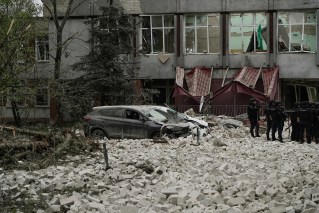New database hailed in cancer fight
Weather forecasting science is being used to predict the most effective ways to fight cancer in a ground-breaking new development.
Techniques borrowed from the UK’s Met Office have been incorporated into a unique “artificial intelligence” database containing 1.7 billion experimental results.
Just as weathermen make their predictions using powerful computers to crunch information from a myriad sources, scientists tapping into the CanSAR database will be guided to the most effective drugs and treatments.
CanSAR, developed in the UK, brings together vast quantities of data from patients, clinical trials, and genetic, biochemical and pharmacological research. It condenses more data than would be generated by operating the Hubble Space Telescope for a million years.
Dr Bissan Al-Lazikani, a leading member of the CanSAR team from the Institute of Cancer Research (ICR) in London, said: “CanSAR uses artificial intelligence, like that used in weather forecasts, to predict which potential drugs are likely to work in which circumstances.
“The database is capable of extraordinarily complex virtual experiments drawing on information from patients, genetics, chemistry and other laboratory research. It can spot opportunities for future cancer treatments that no human eye could be expected to see.”
CanSAR is being made freely available to scientists around the world. It contains more than eight million experimentally derived measurements, information on nearly one million biologically active chemical compounds, and data from more than 1,000 cancer cell lines.
It also holds drug target information from the human genome, and laboratory animals.
Using the database, research that had previously taken months will now take minutes.
Dr Al-Lazikani added: “CanSAR is the only one of its kind, it is the largest database of cancer disease information in the world. There is also nothing like it for any other disease.
CanSAR, which launched today, was developed at the ICR with funding from Cancer Research UK.
Professor Paul Workman, the institute’s deputy chief executive, said: “This is an extraordinary time for cancer research, as advances in scientific techniques open up new possibilities and generate unprecedented amounts of data. Our aim is to make this wealth of information, coming from both the clinic and from the laboratory, freely available in a very user-friendly form to as many people as possible.








